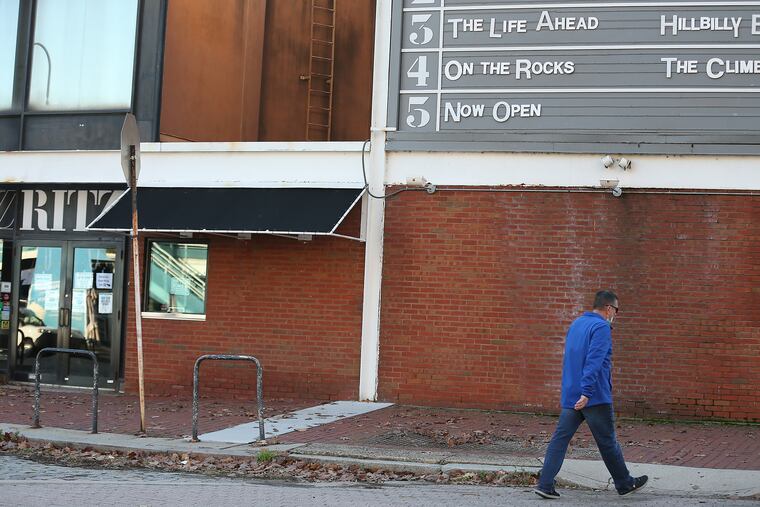Philly arts and culture scene may never recover from latest COVID-19 restrictions | Opinion
In its decision, the Mayor’s Office’s view of arts and culture as a luxury rather than essential infrastructure is clear, if misguided.

Arts and culture has created an imperative infrastructure within Philadelphia. It’s not roads and bridges. Or water and electricity. Or mass transit. But it is essential. Now, with the city’s decision to again close museums and prohibit “all indoor gatherings and events involving people from more than one household” due to COVID-19, we are urgently at risk of losing this infrastructure.
Here, water, and electricity reach every neighborhood. Roads and bridges allow for citizens to explore new places, connect to family and friends, get to work, and pursue new opportunities. At its very core, mass transit moves people to where they need — and want — to go.
» READ MORE: Will Philly’s indie venues have to give up their independence to survive?
In so many ways, arts and culture mirrors that infrastructure. Before the pandemic, more than 180 social impact programs in arts and culture reached every neighborhood in the city, every week. Arts and culture allows citizens to explore new places, connect to family and friends, get to work, and pursue new opportunities. At its core, this industry moves people where they need and want to go. This movement is physical, mental, emotional, and spiritual because art lives within each of us, connecting us to ourselves and others in meaningful, often unexpected ways.
Now, imagine if the city shut down water, electricity, roads, bridges, or mass transit for six weeks — after it had already been shut for months before? That wouldn’t happen. But for arts and culture, that’s what the city’s decision has brought to bear.
No one argues with the city’s desire to protect public health during the COVID-19 pandemic. In fact, millions of dollars have been spent across all sectors, including arts and culture, to comply with public health mandates and protect our staffs and visitors from this insidious virus.
But what will be lost in this next shutdown is the infrastructure that allows for the possibility of full recovery.
» READ MORE: There will be no Comcast Holiday Spectacular this year, not even outside
Ignore the thousands of jobs eliminated due to COVID-19. Pay no attention to the programs or performances, which have long served to bring people together in celebration of our shared humanity. Forget our work done for incarcerated populations, the homeless, and thousands of schoolchildren. What arts and culture is bracing for is the complete folding of arts and culture organizations, the closure of hundreds of neighborhood programs, and the rapid departure of artists, performers, and creative industry workers who will need to move on from Philadelphia to continue their careers.
In its decision, the Mayor’s Office’s view of arts and culture as a luxury rather than essential infrastructure is clear, if misguided. We cannot sustain another closure and still help create and nourish the “product” that is Philadelphia. We cannot deliver on what the city has long relied on us to drive in terms of tourism, while also addressing areas of social impact such as racial justice, mental health, anti-violence, and more. The expectation that we could survive this without any long-term damage demonstrates a real failure to see the value of arts and culture at the grassroots level and grasp that we are in dire crisis.
Philadelphia isn’t prepared for the loss of the arts and culture infrastructure we are about to suffer. Without real, immediate economic relief at the local, state, and federal level, these devastating losses will come, and they will forever alter the fabric of our city come Jan. 2, or whenever “reopening” can occur.
Priscilla M. Luce is the interim president and CEO of the Greater Philadelphia Cultural Alliance. Aalyah Duncan is the leader of Philly Culture United.